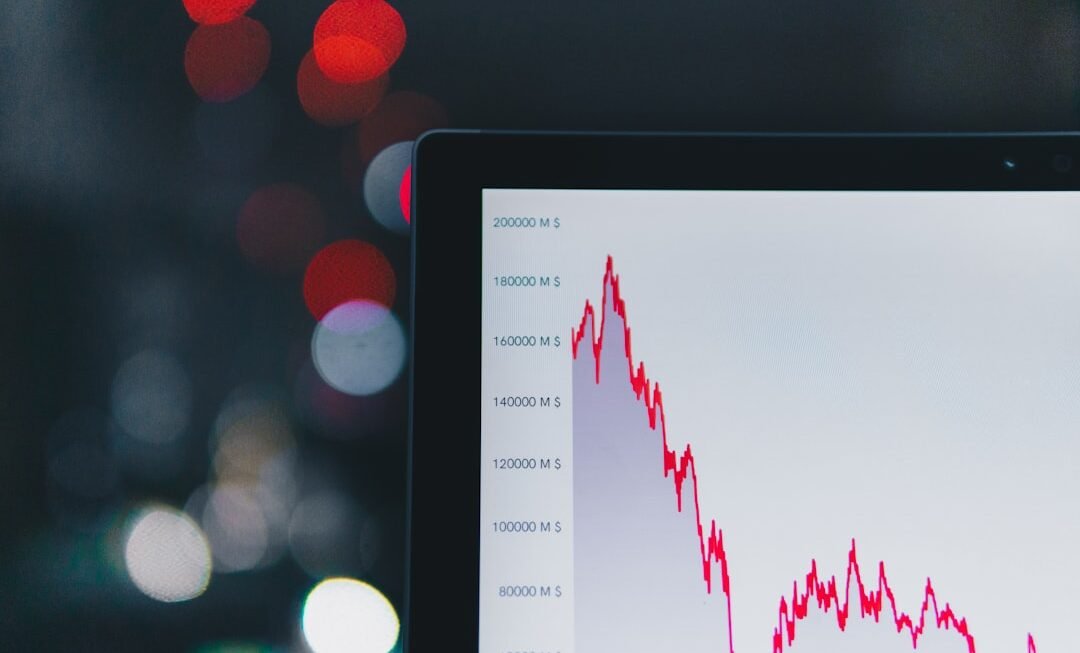The journey of cryptocurrency began in the late 20th century, with the conceptual groundwork laid by cryptographers and computer scientists who envisioned a digital currency that could operate independently of traditional financial institutions. The release of Bitcoin in 2009 by an anonymous entity known as Satoshi Nakamoto marked a pivotal moment in this evolution. Bitcoin introduced the concept of a decentralized currency, utilizing blockchain technology to ensure transparency and security.
This innovation not only challenged the existing financial paradigms but also sparked a wave of interest in alternative currencies, leading to the emergence of thousands of cryptocurrencies in the following years. As the cryptocurrency landscape expanded, so did its applications and functionalities. Initially perceived as a speculative investment, cryptocurrencies began to find their footing in various sectors, from remittances to micropayments.
The introduction of Ethereum in 2015 further revolutionized the space by enabling smart contracts, which allowed developers to create decentralized applications (dApps) on its platform. This shift from mere currency to a broader ecosystem of decentralized solutions marked a significant evolution in the cryptocurrency narrative, paving the way for innovations that would redefine how individuals and businesses interact with digital assets.
The Impact of Blockchain Technology
Blockchain technology serves as the backbone of cryptocurrencies, providing a secure and transparent ledger system that records transactions across a network of computers. Its decentralized nature eliminates the need for intermediaries, thereby reducing costs and increasing efficiency. The impact of blockchain extends far beyond cryptocurrencies; it has the potential to transform various industries, including finance, supply chain management, healthcare, and more.
By enabling real-time tracking and verification of transactions, blockchain enhances trust among participants and mitigates risks associated with fraud and data manipulation. Moreover, the immutability of blockchain records ensures that once data is entered, it cannot be altered or deleted without consensus from the network. This characteristic is particularly valuable in sectors where data integrity is paramount, such as in voting systems or medical records management.
As organizations begin to recognize the benefits of blockchain technology, many are exploring its applications to streamline operations and improve transparency. The growing interest in blockchain has led to increased investment in research and development, further solidifying its role as a transformative force in the digital age.
The Rise of Decentralized Finance (DeFi)
Decentralized Finance, commonly referred to as DeFi, has emerged as one of the most significant trends within the cryptocurrency ecosystem. DeFi encompasses a range of financial services that operate on blockchain networks without traditional intermediaries like banks or brokers. By leveraging smart contracts, DeFi platforms enable users to lend, borrow, trade, and earn interest on their digital assets in a peer-to-peer manner.
This democratization of finance has opened up new opportunities for individuals who may have been excluded from traditional banking systems due to geographical or economic barriers. The rapid growth of DeFi has been fueled by innovative projects that offer unique financial products and services. For instance, yield farming allows users to earn rewards by providing liquidity to decentralized exchanges, while stablecoins provide a less volatile alternative for transactions within the DeFi ecosystem.
As more users flock to these platforms, the total value locked in DeFi protocols has surged into the billions, showcasing the demand for decentralized financial solutions. However, this rise also brings challenges, including security vulnerabilities and regulatory scrutiny, which will need to be addressed as the sector matures.
NFTs and the Digital Art Market
Non-fungible tokens (NFTs) have taken the art world by storm, revolutionizing how artists create, sell, and monetize their work. Unlike cryptocurrencies such as Bitcoin or Ethereum, which are fungible and can be exchanged on a one-to-one basis, NFTs are unique digital assets that represent ownership of a specific item or piece of content. This uniqueness has made NFTs particularly appealing to artists and collectors alike, as they provide a way to authenticate and prove ownership of digital art in an era where copying is effortless.
The explosion of interest in NFTs has led to record-breaking sales at auctions and a surge in platforms dedicated to buying and selling these digital assets. Artists who once struggled to gain recognition now have the opportunity to reach global audiences and retain more control over their work through direct sales. Additionally, NFTs have introduced new revenue streams for creators through royalties on secondary sales, ensuring that artists continue to benefit from their work long after the initial sale.
However, this burgeoning market also raises questions about copyright issues and environmental concerns related to the energy consumption of blockchain networks.
The Role of Cryptocurrency in Online Gaming
Cryptocurrency has begun to carve out a significant niche within the online gaming industry, offering players new ways to engage with games and monetize their skills. Many game developers are integrating cryptocurrencies into their platforms, allowing players to earn tokens through gameplay that can be traded or sold on various exchanges. This shift not only enhances player engagement but also creates a new economy within games where players can invest time and effort for tangible rewards.
Moreover, blockchain technology enables true ownership of in-game assets through tokenization. Players can buy, sell, or trade items across different games without being restricted by centralized servers or platforms. This level of ownership empowers gamers and fosters a sense of community as they can collaborate and compete in ways that were previously impossible.
As the gaming industry continues to evolve, the integration of cryptocurrency is likely to become more prevalent, creating exciting opportunities for both developers and players alike.
Cryptocurrency and Social Media Platforms
The intersection of cryptocurrency and social media platforms has given rise to innovative ways for users to interact and transact online. Some social media networks are exploring the integration of cryptocurrencies as a means for users to tip content creators or purchase exclusive content directly within the platform. This shift not only incentivizes creators but also fosters a more engaged community where users can support their favorite influencers directly.
Additionally, social media platforms are beginning to recognize the potential for blockchain technology to enhance user privacy and data security. By utilizing decentralized networks, users can have greater control over their personal information while still enjoying social interactions online. This evolution could lead to a new era of social media where users are rewarded for their contributions and have more agency over their digital identities.
As these trends continue to develop, it will be interesting to see how social media platforms adapt to incorporate cryptocurrency into their ecosystems.
Regulatory Challenges and Opportunities
As cryptocurrency continues to gain traction globally, regulatory challenges have emerged as a significant concern for investors and businesses alike. Governments around the world are grappling with how to regulate this rapidly evolving space while balancing innovation with consumer protection. The lack of clear regulations has led to uncertainty for many participants in the cryptocurrency market, making it difficult for businesses to operate confidently.
However, this regulatory landscape also presents opportunities for growth and legitimacy within the industry. As governments establish clearer guidelines for cryptocurrency use and trading, it could pave the way for increased institutional investment and mainstream adoption. Furthermore, regulatory clarity can help mitigate risks associated with fraud and scams that have plagued the industry since its inception.
By fostering collaboration between regulators and industry stakeholders, a balanced approach can be achieved that encourages innovation while safeguarding consumers.
The Future of Crypto Payments and E-commerce
The future of cryptocurrency payments in e-commerce appears promising as more businesses begin to accept digital currencies as a form of payment. The advantages of using cryptocurrency for transactions include lower fees compared to traditional payment methods and faster processing times across borders. As consumers become more familiar with digital currencies, their demand for crypto-friendly payment options is likely to increase.
Moreover, advancements in technology are making it easier for merchants to integrate cryptocurrency payment systems into their existing platforms. Payment processors are developing user-friendly solutions that allow businesses to accept various cryptocurrencies seamlessly while converting them into fiat currency if desired. This flexibility not only attracts tech-savvy customers but also positions businesses at the forefront of an evolving marketplace.
As e-commerce continues to grow globally, embracing cryptocurrency could become a key differentiator for businesses looking to thrive in an increasingly competitive landscape. In conclusion, the evolution of cryptocurrency has sparked transformative changes across various sectors, from finance to art and gaming. As blockchain technology continues to mature and decentralized finance gains traction, new opportunities will emerge alongside regulatory challenges that must be navigated carefully.
The integration of cryptocurrency into social media platforms and e-commerce signifies a shift towards a more interconnected digital economy where users have greater control over their assets and interactions. Looking ahead, it is clear that cryptocurrency will play an integral role in shaping the future of finance and commerce in an increasingly digital world.
FAQs
What is cryptocurrency?
Cryptocurrency is a digital or virtual form of currency that uses cryptography for security and operates independently of a central bank. It uses decentralized technology to enable secure and anonymous transactions.
What are the most popular cryptocurrencies?
Some of the most popular cryptocurrencies include Bitcoin, Ethereum, Ripple, Litecoin, and Bitcoin Cash. These cryptocurrencies have gained widespread acceptance and are commonly used for online transactions.
How can I buy cryptocurrencies online?
You can buy cryptocurrencies online through cryptocurrency exchanges, which are platforms that facilitate the buying and selling of cryptocurrencies. You can also purchase cryptocurrencies through peer-to-peer transactions or through cryptocurrency ATMs.
Is it safe to buy cryptocurrencies online?
Buying cryptocurrencies online can be safe if you use reputable and secure cryptocurrency exchanges. It’s important to research and choose a reliable exchange with a good track record of security and customer service.
What are the risks of investing in cryptocurrencies?
Investing in cryptocurrencies carries certain risks, including price volatility, regulatory uncertainty, and security vulnerabilities. It’s important to carefully consider these risks before investing in cryptocurrencies.
Can I use cryptocurrencies for online transactions?
Yes, many online retailers and service providers accept cryptocurrencies as a form of payment. You can use cryptocurrencies to make purchases, pay for services, or even invest in other digital assets.
How can I store my cryptocurrencies securely?
You can store your cryptocurrencies securely in digital wallets, which are software or hardware devices that store your private keys and enable you to send and receive cryptocurrencies. It’s important to choose a reputable and secure wallet to protect your digital assets.












